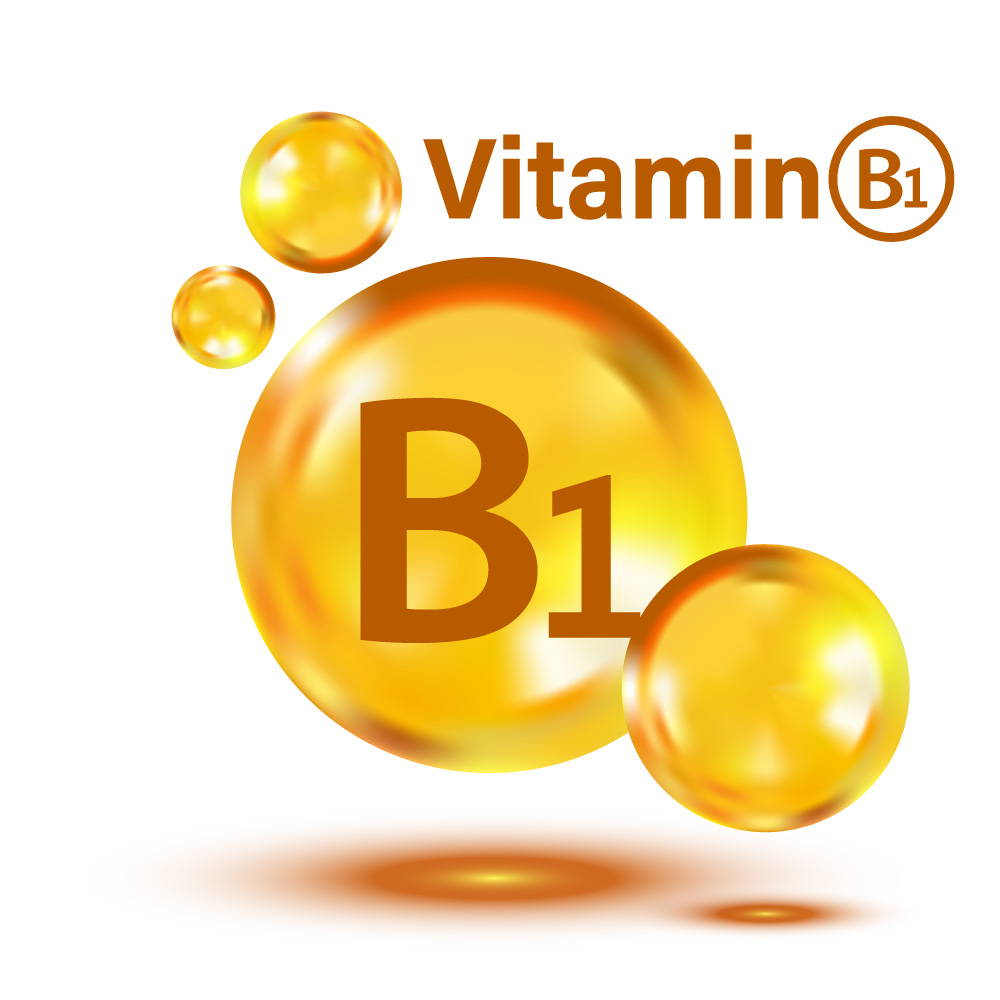SUPPLEMENT - VITAMIN
Explore our effective micro-nutrients and premium ingredients

What is Thiamin and what does it do?
How much Thiamin do I need?
LifeStage | RecommendedAmount |
Birth to 6 months | 0.2 mg |
Infants 7–12 months | 0.3 mg |
Children 1–3 years | 0.5 mg |
Children 4–8 years | 0.6 mg |
Children 9–13 years | 0.9 mg |
Teen boys 14–18 years | 1.2 mg |
Teen girls 14–18 years | 1.0 mg |
Men | 1.2 mg |
Women | 1.1 mg |
Pregnant teens and women | 1.4 mg |
Breastfeeding teens and women | 1.4 mg |
What happens if I don’t get enough Thiamin?
What are some effects of Thiamin on health?
Diabetes
People with diabetes often have low levels of thiamin in their blood. Scientists are studying whether thiamin supplements can improve blood sugarlevels and glucose tolerance in people with type 2 diabetes. They are also studying whether benfotiamine (a synthetic form of thiamin) supplements can help with nerve damage caused by diabetes.
Heart
failure
Alzheimer’s
disease
Scientists are studying the possibility that thiamin deficiency could affect the dementia of Alzheimer’s disease. Whether thiamin supplements may help mental function in people with Alzheimer’s disease needs further study.
Can Thiamin be harmful?
Thiamin has not been shown to cause any harm.
Where can I find out more about Thiamin?
References
1. Said HM. Thiamin. In: Coates PM, Betz JM, Blackman MR, et al., eds. Encyclopedia of Dietary Supplements. 2nd ed. London and New York: Informa Healthcare; 2010:748-53.
2. Bettendorff L. Thiamin. In: Erdman JW, Macdonald IA, Zeisel SH, eds. Present Knowledge in Nutrition. 10th ed. Washington, DC: Wiley-Blackwell; 2012:261-79.
3. Bemeur C, Butterworth RF. Thiamin. In: Ross AC, Caballero B, Cousins RJ, Tucker KL, Ziegler TR, eds. Modern Nutrition in Health and Disease. 11th ed. Baltimore, MD: Lippincott Williams & Wilkins; 2014:317-24.
4. Health information data from U.S. National Institutes of Health
Better than others
Nine medical doctors used their research findings to develop Dr’s Grow UP in the biotech lab. The result is a product containing 22 ingredients mixed in the perfect proportions to maximize bone health and height development.
Why Bone Science?
Science-Backed Formulations
Carrying out extensive research and keeping up-to-date with the latest scientific findings is our key to develop superior formulations.
Best Growth Support for Kids & Teenagers
Our products contain essential ingredients for a healthy bone and height development of kids from 10 years and teenagers.
Fighting Aging Effects
We are dedicated to create formulations that delay and restrict the extent of adult’s bone density decrease.
Unmatched Product Quality
Only 100% natural ingredients that contain no soy, no gluten, no GMOs, no maltodextrin, and no artificial flavors, colors, or preservatives.
Product Safety
All of our products are manufactured in the US in an FDA and NSF cGMP registered facility.
